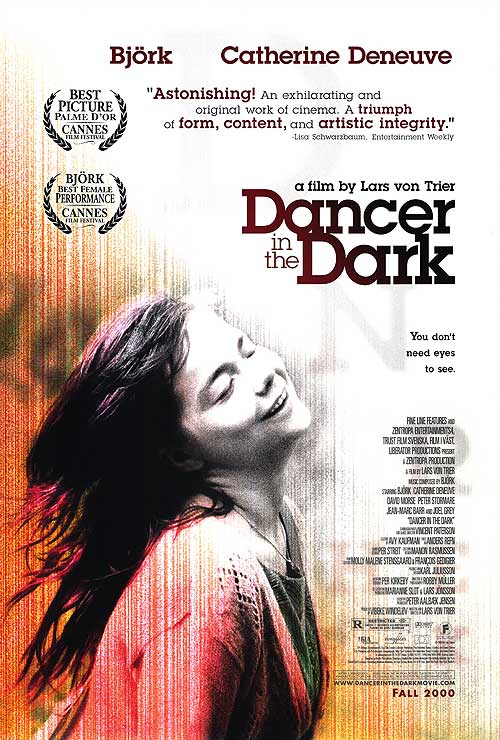Michael Jackson came up for me today, and it reminded me of this video. I saw it for the first time months ago, and chances are you have, too, but just in case you haven’t:

Sound Matters Music Therapy, LLC
Serving adults with developmental disability in Minneapolis, MN
Michael Jackson came up for me today, and it reminded me of this video. I saw it for the first time months ago, and chances are you have, too, but just in case you haven’t:
Yes, the musicality of this song is strange. The singer’s voice doesn’t sound like it should be singing these lyrics. But, I appreciate these lyrics as a music therapist. I was listening to The Current this morning and thought the song, or at least the lyrics, could lend themselves well to a group discussion with high schoolers or middle schoolers.
Any thoughts?
I love when I find other musicians who feel similarly about listening to music as I do. I went to a Labor Day Eve party (there is no reason Christmas can have an Eve and other holidays cannot; why not get even more excited about a day when not laboring is celebrated?) of a really good friend of mine who happens to also be a music therapist, and though I knew that she prefers not to listen to music during her “down time,” I didn’t realize that she gets as distracted by environmental music as I do! We all were seated around the table and my friend’s fiancé controlled the music. Several times my friend asked him to either turn it off or turn it down. I can hardly handle environmental music because as soon as it begins, my attention snaps to it and evaporates from any conversation that is happening around me. Sometimes I find myself analyzing the music, but most of the time I am pulled very strongly to a memory that is attached to the music. Or, if the music is new to me, I’ll listen for its rhythm– essentially, I am too absorbed by the music to function in other ways.
My friend and I have had a couple of short discussions about why we love but also need our space from music, but I’m not sure if she feels exactly the same way I do. One of my favorite parts of the night, though, was when we all convened in the living room, and as soon as there was a mention of turning on music, the two of us snapped, “No music.”
I do like music, though. I promise.
I have always had trouble listening to music unless it is for a specific reason. Sometimes that reason is for research, sometimes it’s to keep me at a certain pace while exercising, and of course sometimes it’s to change or augment my mood.
I came across the idea of creating a “waking playlist” (as I like to call it) or a playlist to hear in the morning which has the function of staging the coming day. I read about this in a couple of different music therapists’ blogs, and I really like the idea. The first piece that I choose for mine is “Boléro” by Ravel. I discovered this piece when I was in fifth grade, and have adored it since.
Recently I heard a Radiolab podcast called, “Unraveling Bolero,” in which the hosts reported on a very unusual story involving one Anne Adams, a biologist whose path resembled Ravel’s in a peculiar way. Here is a synopsis of the episode:
At some point, Anne became obsessed with Maurice Ravel’s famous composition and decided to put an elaborate visual rendition of the song to canvas. She called it “Unraveling Bolero.” But at the time, she had no idea that both she and Ravel would themselves unravel shortly after their experiences with this odd piece of music. Arbie Orenstein tells Jad what happened to Ravel after he wrote “Bolero,” and neurologist Bruce Miller and Jonah Lehrer helps us understand how, for both Anne and Ravel, “Bolero” might have been the first symptom of a deadly disease.
Find “Unraveling Bolero” here:
I have a client who seems to have a great deal of anger. For months now, he and I have made very small steps toward reaching his goals. I have had trouble engaging him in any of the musical experiences I present, even though he speaks at length about how he wants to be a guitarist.
I feel that I’m failing him, and I don’t have any more ideas. Only one time in months leading up to tonight have I felt that he was interested in anything I provided, and that experience was songwriting. He participated in that for only one session.
Tonight, he seemed particularly angry. He vented for most of the session, which seems absolutely appropriate for some clients to do every so often. However, with this client, I can hardly ever direct him away from this venting on any occasion. Because I sensed he would not even touch his guitar, I decided to match his mood with some recorded music I have on my iPhone. His favorite genre of music is heavy metal. I don’t have any of that genre readily available, so I found “God’s Away On Business,” by Tom Waits, with which he was not familiar. The timbre of Waits’s voice could be somewhat comparable to some of the vocals in some heavy metal bands. But, Waits typically juxtaposes the roughness in his voice with melodic lines, provided by instruments such as the bassoon and marimba. I felt I could intrigue my client with novelty and the quality of Waits’s voice, and hopefully move him away from his anger. I think it worked; he quieted and seemed to listen, even though his comment was, “That sucked.”
We moved on from there, and I did hold his attention for the rest of the session by using Pandora on my phone to play a station of bands he likes.
Sure, we weren’t able to reach any “true” goals tonight, but I was happy with the distance we did travel.
I love Björk. I have for years. I even liked how she sent me to tears for days in “Dancer in the Dark.” 
I find Björk to be a creative genius, with the beats she produces, the instrumentation she manufactures and manipulates, and the ideas she seems to be constantly generating. This is why I was thrilled to hear a description and review of her newest album, “Biophilia,” on the The New York Times Science Times podcast.

“[The album] is no ordinary album. It uses unusual and newly-invented instruments to reflect the rhythms of nature.”
–Pam Belluck, The New York Times
Ritchie King wrote about “Biophilia” for Science Times, and you can hear some of what he has to say about it here.
Björk combines her music with iPad apps in order to make her product interactive. I am fascinated by her.
I just listened to Friday’s podcast “NewsPod” from the BBC, and the last story describes how Yorkshire’s anthem, “Ilkla Moor Baht’At,” is dying out. A music teacher uses the tune to teach intervals, and has noticed that in the past three years, fewer and fewer of his students know the song.
(Should you like to hear only this portion of “NewsPod,” skip to 29:04 in the podcast.)
Over the months I have worked at my care center, I have learned many “standards” from the 1930s, 1940s, and on. However, many of those songs I hadn’t known before I worked there. Once I learned them, though, I have been able to use them in a variety of situations.
A surprising number of family members have come up to me and asked what music I predict will be provided for me and my generation when I’m elderly. And I always answer that I don’t know.
There isn’t “standard” music for my age group, which is definitely not to say that each person I serve shares the same taste in what we call “old standards.” With the rise of availability and access to music from all around the globe, there will be simply no way to predict what any one group of people will enjoy. Music therapy is very concerned with patients’ and clients’ musical preference. I wonder just what that will be in a few decades.
Roger Williams, playing an excerpt from “Autum Leaves.” Known as the “pianist to the Presidents,” Williams died yesterday at the age of 87.
 I have a client who is very interested in anything heavy metal — the clothes he wears, the guitar he has, and, of course, the music he wants to hear and learn. I have had a lot of difficulty finding ways to engage him musically, though he speaks of little else. Last week, I asked him to bring in CDs that he likes, and thankfully, he did. So my night began with some Rammstein — yes, we listened to “Du Hast,” among other tracks. He was immediately attentive, and his affect changed immensely. (I was not surprised in the least, but there are many other factors that are attached to this client’s sessions.)
I have a client who is very interested in anything heavy metal — the clothes he wears, the guitar he has, and, of course, the music he wants to hear and learn. I have had a lot of difficulty finding ways to engage him musically, though he speaks of little else. Last week, I asked him to bring in CDs that he likes, and thankfully, he did. So my night began with some Rammstein — yes, we listened to “Du Hast,” among other tracks. He was immediately attentive, and his affect changed immensely. (I was not surprised in the least, but there are many other factors that are attached to this client’s sessions.)
My very next client is much more enraptured by live music (not to say that my first client wouldn’t be, were I to have the ability to pull off live music that had a metal sound), but we did use some recorded music tonight, too. However, this client’s recorded music was written and performed by a good friend of mine, who also happens to be an MT-BC. Lynn O’Brien writes outstanding music. Not only does she work as a music therapist, but she also is an actively gigging musician. Many of her songs would likely work well with adolescents and young adults. You can find two of her CDs out there in the world — iTunes, for instance. Find more information on Lynn here.
Oh, how different music can be for you and for me.